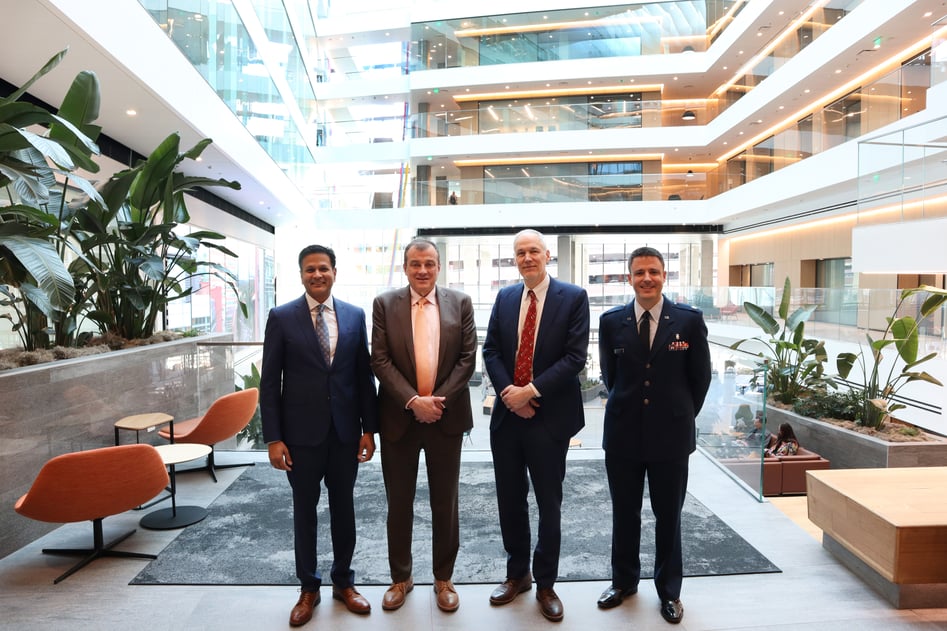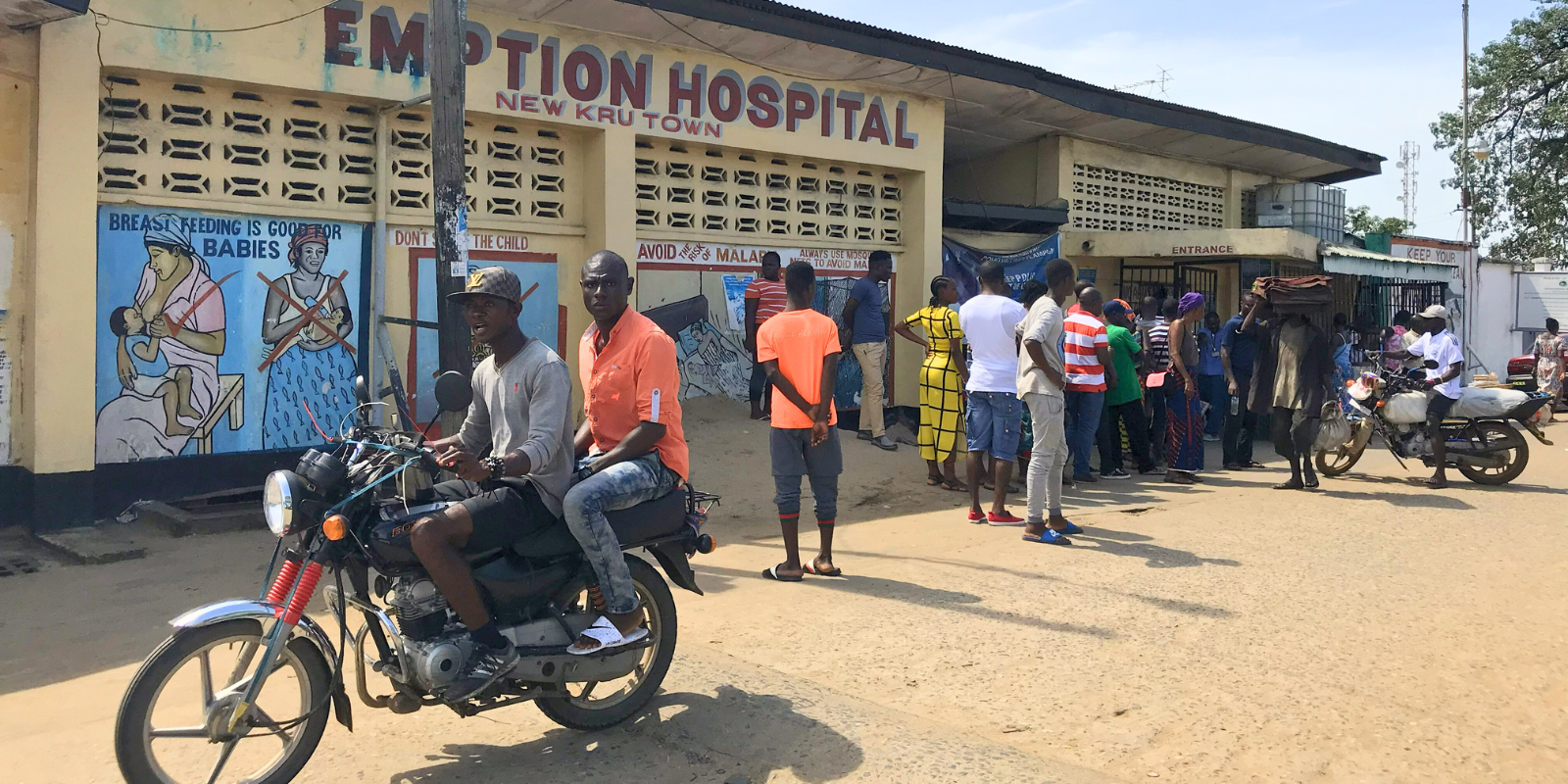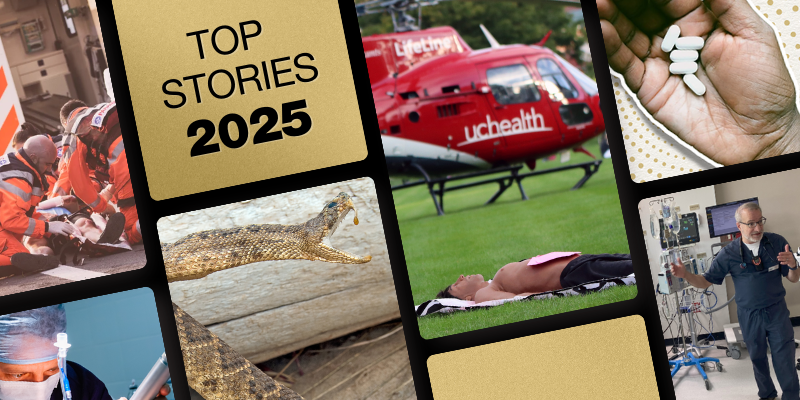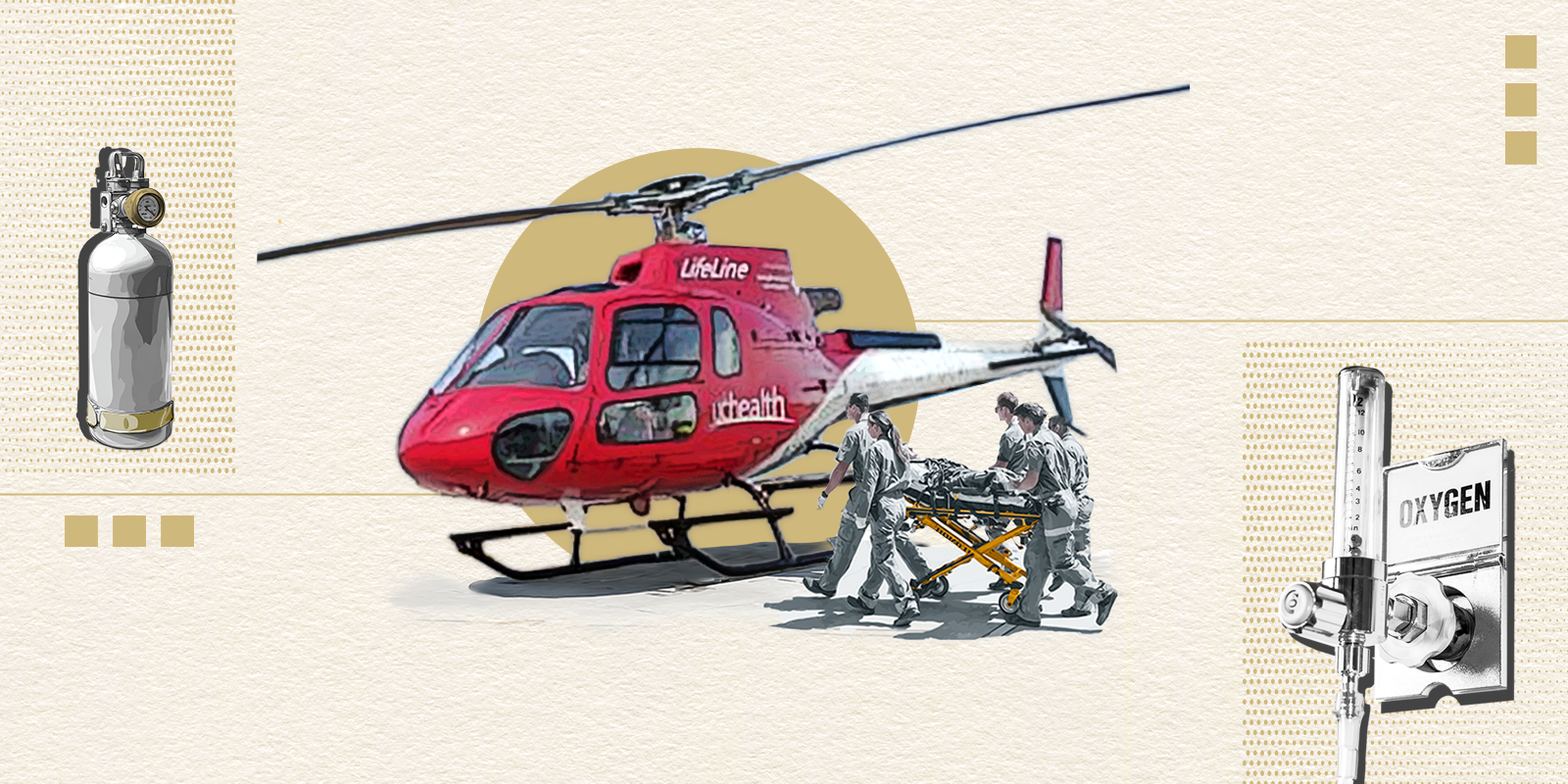On Wednesday, The Center for Combat Medicine and Battlefield (COMBAT) Research hosted leaders from Uniformed Services University (USU) on the University of Colorado Anschutz Medical Campus for a research affiliation agreement ceremony to highlight the continued research partnership between USU and the CU School of Medicine.
Similar to COMBAT and its research collaborators across campus, USU is a leader in military health, biomedical research, medical education, global health engagement, and health leadership. The research agreement combines the expertise of faculty from both institutions to provide guidance on future collaborations and to address critical research priorities for the U.S. Department of Defense. The agreement, officially signed in September 2022, is one of the first of its kind.
Col. Vik Bebarta, MD, director of COMBAT, and John J. Reilly Jr., MD, dean of the CU School of Medicine, opened the ceremony by welcoming retired Col. Mark Kortepeter, MD, vice president of research at USU, and Lt. Col. Ian Stewart, MD, professor of medicine and director of the division of nephrology at USU. Reilly spoke on the importance of their collaboration and continued partnership.
“One of COMBAT’s strategies is to enhance key research partnerships. We want to advance the shared mission of new models and approaches for the health and safety of our service members, so it’s fortunate we can share this partnership with USU,” said Reilly.
After the ceremony, USU leadership met with COMBAT’s primary principal investigators from the CU Department of Emergency Medicine, Department of Biomedical Informatics, CU Innovations, and Department of Bioengineering, most of whom have worked with USU on projects over the past year.
Accelerating research through collaboration
The agreement and Wednesday’s ceremony solidify joint military-relevant research projects, including new methods for airway management, blood purification for sepsis, and helping providers assess traumatic brain injury. Through their partnership, COMBAT and USU have collaborated to submit three grant proposals to the Department of Defense with more projects on the horizon.
One major research advancement COMBAT provides is access to clinical trials, which is a key factor in the research agreement. Adit Ginde, MD, principal investigator for the Airway, Trauma, Lung Injury, and Sepsis Research Program (ATLAS) and COMBAT collaborator, is a campus leader for clinical trials. “The research partnership with USU will benefit from Ginde’s collaboration with an efficient and high-performing critical care and acute care clinical trial platform that is focused on the needs of the current and future battlefield,” Bebarta says.
Airway management is one of ATLAS’s core research areas, and the types of biomedical engineering needed to create prototypes for testing wouldn’t be possible without collaboration with the CU Department of Bioengineering and Department of Biomedical Informatics. COMBAT has been strengthening these innovative connections across campus over the years and aims to be the bridge between USU and these resources.
“Part of the center’s values as a cross-cutting organization is to bring out the best teams and capabilities within the ecosystem of CU Anschutz,” Bebarta says. “We work together on novel solutions for the U.S. Department of Defense’s toughest medical challenges through funded opportunities.”
Emmy Betz, MD, MPH, professor of emergency medicine and COMBAT collaborator, worked with USU on Project Safe Guard through the Injury and Violence Prevention Center, where she is deputy director. Project Safe Guard trains National Guard leadership to conduct a single lethal means counseling session aimed at promoting secure firearm storage at all times, normalizing discussions of firearm storage, and preventing firearm-related injuries and deaths.
Between the innovative research and resources at CU Anschutz and the world-class faculty and military connection USU offers, COMBAT looks forward to collaborating on new projects for the Department of Defense this year.
From left to right: Col. Vik Bebarta, MD, John J. Reilly, MD, retired Col. Mark Kortepeter, MD, Lt. Col. Ian Stewart, MD.
Mentorship for Scholars
In addition to enhanced research resources and collaboration, the academic community will also benefit through increased opportunities for mentorship in the military medicine.
COMBAT launched a scholars program in 2019 to advance the professional development of CU Anschutz students in medical, nursing, and dental school with an interest in U.S. military-relevant research through mentorship. The program has been highly successful, with 11 current scholars and three graduated scholars.
The research agreement includes the addition of two USU scholars to the program in 2023, with the goals of providing scholars with the knowledge, skills, and abilities required to successfully conduct research and facilitating networking with military, principal investigators, and researchers. The two USU scholars will receive full support throughout their medical school experience.
“We hope that by welcoming two new COMBAT scholars from USU, we can make a statement that mentorship and guidance for military medical researchers is a major need in the community and nationwide,” said Bebarta. “Supporting the next generation of military researchers is part of being leaders in research and ultimately advancing future collaboration.”
COMBAT will facilitate two scholar application cycles per year and select top candidates who will excel as military researchers.
Moving forward together
With USU’s connection to worldwide research through the U.S. Department of Defense and COMBAT’s technological advancements and collaborators on the CU Anschutz campus, this agreement provides a robust symbiotic research relationship.
“COMBAT’s mission to solve the U.S. military’s toughest medical challenges by leading high-impact research, education, and innovation through collaboration aligns perfectly with USU’s mission to facilitate world-class education, research, and putting the warfighters first,” Bebarta said.
Kortepeter agrees. “Whether it’s preventing illness, early diagnoses for disease, or getting our warfighters back to serving, we look forward to a great partnership with COMBAT going forward.”
.png)



